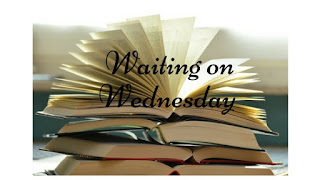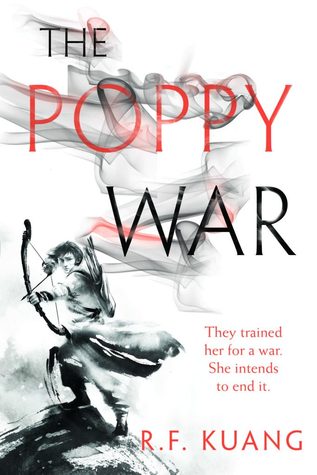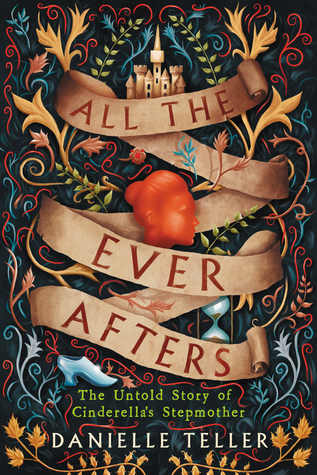Wow, where do I even start talking about one of the biggest fantasy releases of the year? Babel is truly a masterpiece and Kuang has really outdone herself with this incredible novel. I have been dying for more work from Kaung ever since finishing her Poppy War trilogy. Babel has a very epic scope and tackles some difficult, important topics in a head-on and compelling manner while also introducing a complex and fascinating magic system. All that being said, I also have a lot of mixed feelings about it. The research, the writing, the magic system, the many different important issues touched on–all of that was amazingly done and I have to laud Kuang for her feat–however, the characters, the heavy-handedness of some of the writing, and a few other minor issues made me struggle to get through this book at times.
Before diving in, I want to put a little preface that this is going to be a long review. I have a lot of thoughts about this book, and because of that, I've tried to sort of separate this review into two sections, the first focusing on my praises and the positives, and the second portion focusing on my more critical comments and issues with the book. This book is a five star read in some ways and a two star read in others, which has left me feeling all kinds of confused and unsure how to feel or rate this book that was supposed to be a new favorite. So as to not make this even longer... let's dive into the review.
Babel follows Robin Swift as he is taken from his cholera-stricken home of Canton where his entire family has succumbed to the illness and brought to Oxford by Professor Richard Lovell. While under the care of Professor Lovell, he is educated in Ancient Greek, Latin, and Chinese in order to maintain his native fluency in preparation for his future as an Oxford scholar and student of the Royal Institute of Translation there. The intent is for Robin to become a student of silver-working, an act of magic that has allowed the British Empire to continuously colonize and take power throughout the world, and it is while Robin undertakes this training that he has to come to terms with the fact that is he becomes a silver-worker with his fellow students, he will have to betray his own ties and loyalties to his origins.
I really enjoyed the first portion of this book when we first meet Robin and embark on a new journey with him to Oxford to begin a new life. Kuang does a good job of introducing readers to new characters and sharing backstories and insights into their personalities. ALong with Robin, we meet his schoolmates: Ramy, from Calcutta; Victoire, from Haiti; and Letty from England, all of whom have very distinct backgrounds and circumstances that caused them to end up at Oxford with Robin. I appreciated Kuang’s effort into creating such unique characters and spending so much time on making sure each one had something important to bring to the story and contribute to the diversity of this cohort.
The magic system of silver-working is genuinely fascinating and I liked the puzzle-like aspect of making it work. I personally love the intricacies of language and translation, so the very nuanced way in which it works was really neat to explore and watch in action as we learned along the students. There were certain minor aspects of it that didn’t make complete sense to me, such as how exactly it works and came to be, but nothing that took me out of the story too much. I won’t try to explain the intricacies of silver-working, either, but if you’re looking for a fresh magic system to explore that has a lot of fine elements to it, then this is going to be one for you to check out.
I think one of the biggest and most prominent parts of this book, as I’m sure most people are aware of, is the heavy focus on racism, colonialism, and many other injustices, prejudices, and difficulties that were prevalent in both 1830s London and even today that many minority groups faced. Kuang absolutely nails these topics, and I think this alone makes Babel a worthwhile read and one that I wholeheartedly recommend. I have a lot of problems with how some of these issues are incorporated into the story and/or the style in which they are included, but it doesn’t take away from how absolutely vital the conversations are about them and how fruitful they are for our own takeaways from this book. Kuang really captures the struggle it was to be a non-white non-London native person in this period in ways that transcend to today, from blatantly racist acts to more subtle attacks and struggles that are often overlooked by those who are not affected by them. I also think the inclusion and discussions of colonialism and its nuances and impacts on both past and present day life of people around the world was explored thoroughly and had a lot of sobering insight on how big these topics are, and also how easy it is for people in the colonizing country to overlook the impacts and effects (and how easy it is for them to not care).
This positive that I have next is equally going to be in the critical portion of this review as well because it contributed to some major pacing issues, but the content itself was something I personally enjoyed, and that’s the many, many (many) lectures, discussions, and explanations about language we got to be a part of in this book. I should preface this by saying I love talking about translating almost as much as I love translation itself, so this could not have been a more topic/focus of Babel for me. Questions such as whether there is such a thing as a perfect translation or how to translate a work and maintain it's culture–if possible– are all explored in great depth and with great interest. I’ve studied Ancient Greek and Latin for a number of years (in all honesty, I vastly prefer Greek and think it’s one of my favorite languages to learn; Latin… is not my favorite), so I found the negative attitudes toward Classics and Greek and Latin both accurate for the time period and a little unfortunate (but I won’t hold that against the book! I am pleased with) and I found some of the conversations around the nuances of translation so familiar and relevant. I can absolutely see where someone who doesn’t really find that much interest in translation, however, will find these sections to be a slog, and we’ll touch on that a bit more later, but if you find language and culture and everything in between the slighted bit interesting, these lectures will definitely still grab your interest.
Now, moving on to the critical portion of this review… I had a lot of problems. A lot were minor in scale, but added up to the point where I started debating whether or not I should DNF it. I again want to preface this by saying that I am not critiquing the actual content of any of the important issues discussed, but the manner in which they are sometimes presented.
The first thing I’d like to talk about is the lack of character development. We had character arcs and Robin definitely undergoes some big changes throughout this book, but my problem is that we really don’t get to see much of his evolution in personality and goals. We are told about his changes and then we get random scenes where he says or does something, and then by the end of the book he has just majorly changed in ways that didn’t feel fluid. I’m fine with how things turned out and actually really love how Kuang ended this book and Robin’s arc, but it just happened in such a clunky manner. And since this is R.F. Kuang writing this book, there are some character deaths (I won’t say who, don’t worry!), and I’m sorry to say that I didn’t really care about them that much because I never felt like I really got to know or connect with the characters in questions when I really think it was supposed to mean more to me. I was sad, of course, but not heartbroken in the way a book with really well developed and complex stories should. I think this is also partly because we don’t get a chance to really bond with this group of friends in any impactful way. We are constantly told about their friendship and how they’ve become a family to one another, but rarely do we actually get to see this on the page, which left everything feeling very distant. I also felt that the way these characters treat each other at times does not at all scream "family" to me.
As mentioned, this book tackles a lot of really important issues and for that alone it’s worth the read. She tackles these topics with nuance and care and does a great job of conveying her ideas. What I didn’t like, however, has how heavily it was hammered home at every possible moment in the most overt ways. It’s not that I need things to be done in super subtle ways that you can barely tell, but I don’t need to be told “this is racist!” so obviously on every other page. I think some things should really be left for the reader to read, judge, and understand on their own–sort of their own learning experience, if you will.
In a similar vein was my problem with Kuang’s choice of language at times. Using phrases such as “white people” and having one non-white character refer to another non-white character as “my brown friend” are just not really how people talked about race in 1830s London. I wouldn’t really have a big issue with anachronisms like this if it weren’t for the fact Kuang has clearly put a lot of effort into research and historical accuracy in this book–so why does that not extend to the language and way the characters speak? I understand if you want this to feel relatable, but it took me right out of the setting and into the present day. I felt that there was just a bit too much modern language and sentiments that you'd find on Twitter thrown into this book in ways that didn't match the setting and felt quite jarring.
I love R.F. Kuang. I respect her so much and think she’s an incredible woman with some really amazing academic accomplishments, but something about this book just felt like it was really trying to show all that to the readers in really excessive ways. The amount of “fun facts” littered throughout the story about Oxford were interesting, but entirely useless in conjunction with the story itself (not that the plot was that strong, but we’ll get to that) and it just made me want to say, “yes, I know, you went to Oxford” a million times. Since she included footnotes in this story, I feel like a lot of this information could have gone into those footnotes.
I also found a lot of the characters hypocritical. I understand people are human and will be hypocritical or change over the course of a story, but there were definitely inconsistencies in actions over the arc of the story that didn't feel consistent with development. This also happened with a character who was typecast as the ignorant racist friend and the characters that were deemed the good ones by Kuang. I’m not excusing the ignorant racist friend’s choices and inability to empathize at times, but her reactions were treated much harsher than very similar reactions had by other characters. One person was allowed to be hurt and extremely upset by another friend’s secrets, but when the Problematic friend is hurt and upset, her reactions are considered overdone and not allowed. It was just frustrating to see this and I felt genuinely confused at times. I understand that context and nuance are important in how we treat other peoples’ reactions and if someone has a history of ignorance it can be more difficult, but this was a repetitive issue that didn't actually work or feel like an appropriate response.
The pacing of Babel is very slow. I’m a little torn because I really enjoy nonfiction and history and translation and etymology, so I didn’t particularly mind the excessive tangents into lectures and fun factions about words and the history of Oxford and so on, but it really did sort of wreck the pacing. I completely understand why I’ve seen a number of DNFs for this book because to even get to the meat of the plot itself, you have to get at least 50% of the way through. This book even has a secret society of revolutionaries, but it’s done in such a slow, drawn out way that I never felt that enticed by it. There is a lot to get through in this book and it’s just not written in a way that makes it all that enticing to get through at times. It’s definitely more for a certain type of reader, and I am that reader sometimes so I did enjoy some aspects, but it’s still a slow going time due to the density of the content.
Lastly, my unpopular opinion would be that I don’t see this as being overly in conversation with other dark academia classics–especially The Secret History–because it didn’t really feel like a dark academia novel at times. There is a Big Climactic Event that occurs and I think is supposed to be the big clincher of making this dark academia, but it felt very anticlimactic in reality and really felt like it was trying a bit too much. We are told a lot about their academic lives and journey, but I never really felt as though the reader got to be a part of it.
Overall, Babel was a truly fascinating read and one that I know people will adore, but that I think some may find a bit on the slower side. Babel is a really well-written book by a very talented author and it has so many strengths that will make it a well-loved fantasy. I was disappointed by many of the issues I had with it and honestly surprised by many components that didn't quite work, but this was by absolutely no means a bad book. I would still absolutely recommend it to everyone because I think this will be a very individual story that reaches everyone in different ways. I've given Babel three stars and I can't wait to see more reviews from everyone once it is released!















